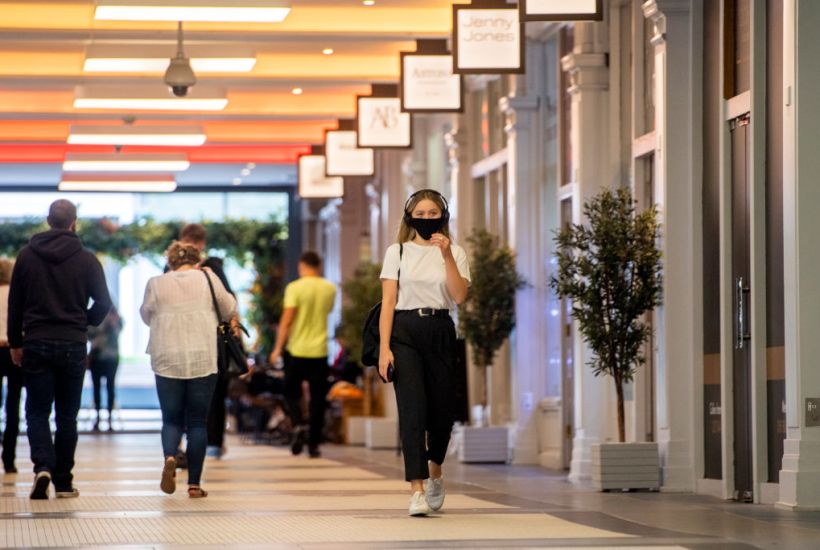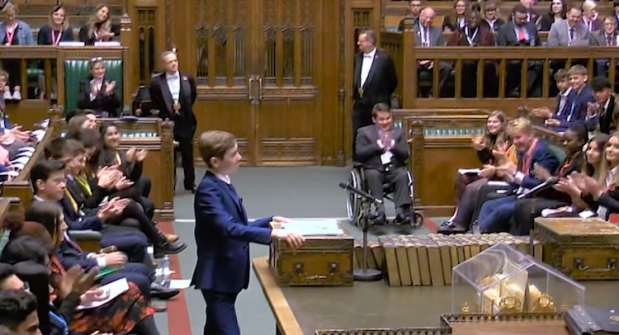Today is the first day of the Covid-19 pandemic in England when you must wear a mask if you go shopping.
Up to now ministers and health and scientific advisors have played fast and loose with facial coverings. Judgements on their merit and usefulness have waxed and waned from the ‘yeah, but no, but yeah’ of some, to the complex virology of ‘better on than off’ of others. It was a mess.
But now, nearly six months on, they are a legally enforceable must. Failure to wear one could land you with a £100 twang of a fine on the elastic on the mask you should have donned before setting off to the shops – or the bank, or any other enclosed space of exchange or consumption.
Seeking some medical authority on the matter, I asked the Chair of the BMA’s Public Health Medicine Committee, Dr Peter English, a guest on my TalkRadio show on Friday. The good doctor said it was ‘the kind thing to do’.
That was a first for me. Gentility, good manners and respect for others as the driver for a legally enforceable imposition.
Earlier on the show programme, I had asked Helen Whately MP, the Health and Care Minister, about the practicality of the edict.
The backdrop was the front page splash of the Daily Telegraph reporting the insistence of Sainsbury’s and Asda that it wasn’t their job to police shoppers and that they wouldn’t be doing it. Waitrose said they would but, given all those excellent jokes about who shops where, Waitrose customers are probably the last who need to be told. And James Daunt, the CEO of Waterstones bookshops, told me on TalkRadio he’d simply remind his customers, via posters at the entrance to his shops, of the rules. He observed: ‘Our customers can read’.
In most of the newspapers the Metropolitan Police Commissioner Dame Cressida Dick was also reported as saying the enforcement of masks would not be a priority. She hoped shoppers refusing to wear masks will be ‘shamed’ into compliance; calling the police, she said, should be a ‘last resort’. John Apter, the General Secretary of the Police Federation, was reported as saying it was hardly a priority for his hard-pressed members.
Ms Whately told me she believed most reasonable people would comply.
I suggested the public response to the social distancing rules on the streets of Liverpool, as fans celebrated their side’s premiership triumph, and the numbers taking to the streets in support of Black Lives Matter, didn’t give great grounds for optimism. I accused her of being ‘delusional’.
She insisted only a ‘minority’ would behave badly and that the the bulk of ‘sensible people’ would do the ‘right thing’.
But Covid-19 is a killer, and the Prime Minister spoke clearly yesterday of the ‘likelihood’ and the ‘probability’ of a second wave. In that context, I wondered if it was enough simply to ask folk to be ‘nice’, and ‘thoughtful’ and, as the good doctor said, ‘kind’.
But there is a deeper dilemma for the country. There is a division at the heart of the Conservative Party and the government of Boris Johnson. To what degree should democratically elected governments boss people around, even for what some judge as their best interests? It may not be up there with the Corn Laws or Brexit, but it matters. The initial suggestion of Michael Gove, the Cabinet Office Minister, that masks would not be insisted upon spoke to that division.
The libertarians hate any unnecessary invasion of our freedoms of choice even if our actions are deemed by others as self-harm or displays of a thoughtless disregard for others. The more corporatist in the party recognise government has a responsibility on behalf of the majority to factor in our capacity for selfishness and to go beyond nudge politics into the tricky realms of edicts.
When ‘R’ is a such an elastic measure, and such a slave and victim to the smallest shifts in human social behaviour, I wondered if relying on a ‘nice’ majority doing the right thing was enough.
However, the truth is that that is precisely what the government is doing. The Health and Care Helen Whately MP was honest enough to admit that on live radio and I respect her for it.
For Boris Johnson, closer to the libertarian wing of conservatism, it is a compromise. He may even have guessed at, or known, what Sainsbury’s and Asda would say and have been relying on the realism of Cressida Dick.
Silly laws are ignored by people, day in day out; even the courts occasionally are dismissive of them.
The police are not averse to using the defence of having better and more pressing things to do than to enforce silly laws. Shopkeepers, wrestling for their very survival, may simply say ‘a customer is a customer, period’. McDonalds may have security people, as we saw yesterday, who will turn a man on his heels for seeking a Quarter Pounder or a Big Mac without wearing a mask. Others will welcome the crash of cash or the swipe of the credit card because it will help keep the show on the road.
Either way, it is food for thought along with whatever else you buy when you go shopping today, with or without your mask on. The collision of freedom of choice with the responsibility of keeping ourselves and others healthy and safe is not simple.
Got something to add? Join the discussion and comment below.
Get 10 issues for just $10
Subscribe to The Spectator Australia today for the next 10 magazine issues, plus full online access, for just $10.




















Comments
Don't miss out
Join the conversation with other Spectator Australia readers. Subscribe to leave a comment.
SUBSCRIBEAlready a subscriber? Log in